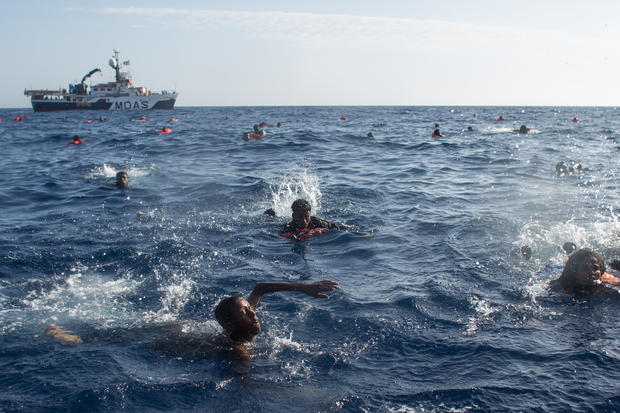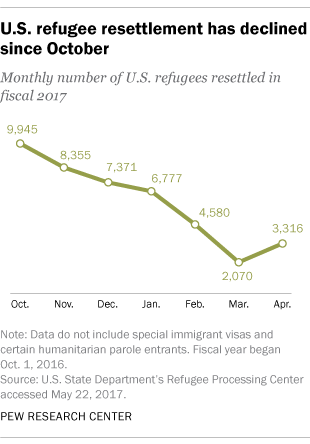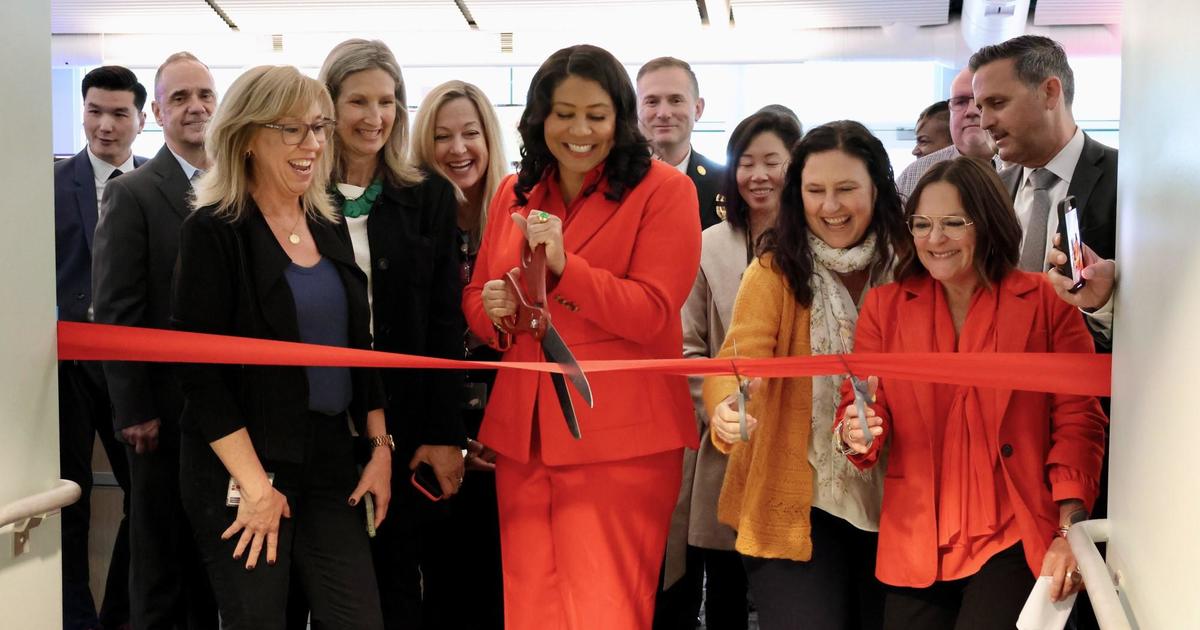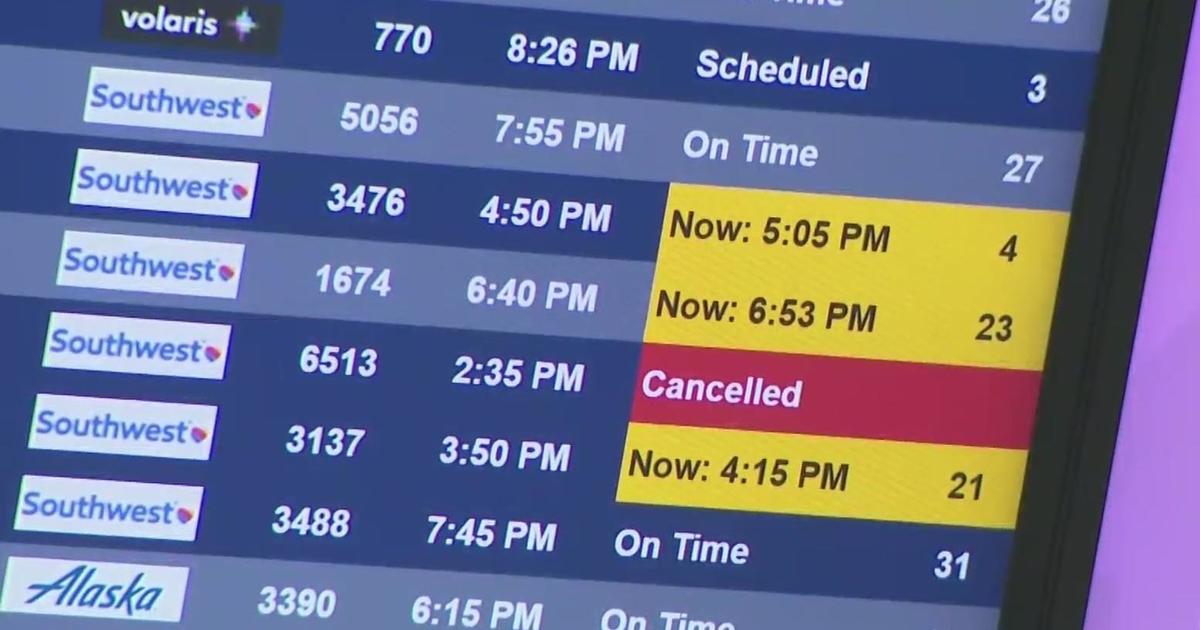Blocked Travel Bans Reduce Flow Of Refugees Into U.S. To A Trickle
SAN FRANCISCO (CBS SF) -- President Donald Trump's attempts to establish a travel ban have been blocked yet again, but his travel ban executive orders are the reason why the number of refugees coming into the U.S. has significantly slowed in recent months.
The Department of Homeland Security told CBS San Francisco that the travel bans, despite being blocked by the courts, have significantly impacted refugee processing by the United States.
Marilu Cabrera, a spokeswoman for the Department of Homeland Security's U.S. Citizenship and Immigration Services, that two days before Trump issued his first travel ban, Executive Order 13769, USCIS suspended the departures of officers who were scheduled to travel abroad to interview refugees through February 15th.
Then, when E.O. 13769 was signed, USCIS canceled most of the scheduled trips for officers traveling overseas to interview refugees for the entire second quarter of the fiscal year, through the end of March, according to Cabrera.
Cabrera said, "EO 13769 lowered the refugee admissions ceiling for FY17 to 50,000, and the State Department and USCIS assessed that it was not necessary to interview large numbers of refugee applicants in order to meet the new ceiling…"
And then, on March 6, Trump issued a new travel ban, E.O 13780, to replace the first one.
"Section 6 of EO 13780 – which relates to refugee resettlement – was enjoined on March 14, 2017, by the US District Court for the District of Hawaii," Cabrera said.
With that court ruling, the ceiling for refugee admissions reverted back to 110,000, as established in the Presidential Determination on Refugee Admissions for Fiscal Year 2017.
"Since then, USCIS has been working with the State Department to adjust the pace of refugee processing and to schedule refugee interviews for the balance of the fiscal year," Cabrera said.
Cabrera said USCIS and the State Department are planning to conduct refugee interviews on a larger scale for the remainder of the fiscal year, which ends on September 30.
But the travel bans have slowed number of refugees arriving in the United States to a trickle, in comparison to the previous year.
For instance, in March 2017, only 2,070 refugees were resettled in the United States, in comparison to 6,229 in March 2016.
Even in California, the state that has resettled the most refugees so far this fiscal year -- at 4,183 refugees as of the end of April 2017 -- resettlement numbers have shrunk.
The downturn is not for a lack of refugees. The United Nations High Commissioner for Refugees recently stated that the world is in the midst of the largest refugee crisis in modern history.
The decline in refugee arrivals in the United States is occurring in 46 U.S. states, including California, according to analysis done by the Pew Research Center of U.S. State Department data.
In October 2016, California resettled 814 refugees compared to only 338 refugees resettled last month.
Last year, California resettled 7,909 refugees and led the country in the resettlement of Syrian refugees, according to data from the U.S. Department of State's Worldwide Refugee Admissions Processing System.
Related: California Leads The Nation In Resettlement Of Syrian Refugees
There is growing concern that the Department of Homeland Security continued to implement Trump's executive order capping the total refugee arrivals for this year at 50,000, even though it has been blocked in court. The cap is less than half of the annual limit put in place by the Obama administration.
Earlier this month, a bipartisan group of senators wrote a letter to Secretary of State Rex Tillerson and Secretary of Homeland Security John Kelly, prompted by concerns that the Trump administration's efforts to bar new refugees continue despite the court rulings against it.
The senators have demanded information about any policy changes made regarding the processing of refugee resettlement applications since Trump's first executive order.
The Washington Post reported in early May that anonymous sources at the Department of Homeland Security and resettlement organizations told them that the department had not resumed overseas interviews with refugee applicants since Trump released his initial executive order banning people from seven Muslim-majority nations and halting all refugee arrivals for 120 days.
Trump's travel ban was handed its latest blow on Thursday when a federal appeals court blocked its revised efforts to stop the issuance of visas to people from the Muslim-majority countries of Iran, Libya, Somalia, Sudan, Syria and Yemen.
U.S. Attorney General Jeff Sessions said the Department of Justice disagrees with the decision and will seek review of the case in the United States Supreme Court.
The U.S. Circuit Court of Appeals for the 4th Circuit said that Trump's order likely violates the Constitution and "drips with religious intolerance, animus and discrimination."
By Hannah Albarazi - Follow her on Twitter: @hannahalbarazi.





